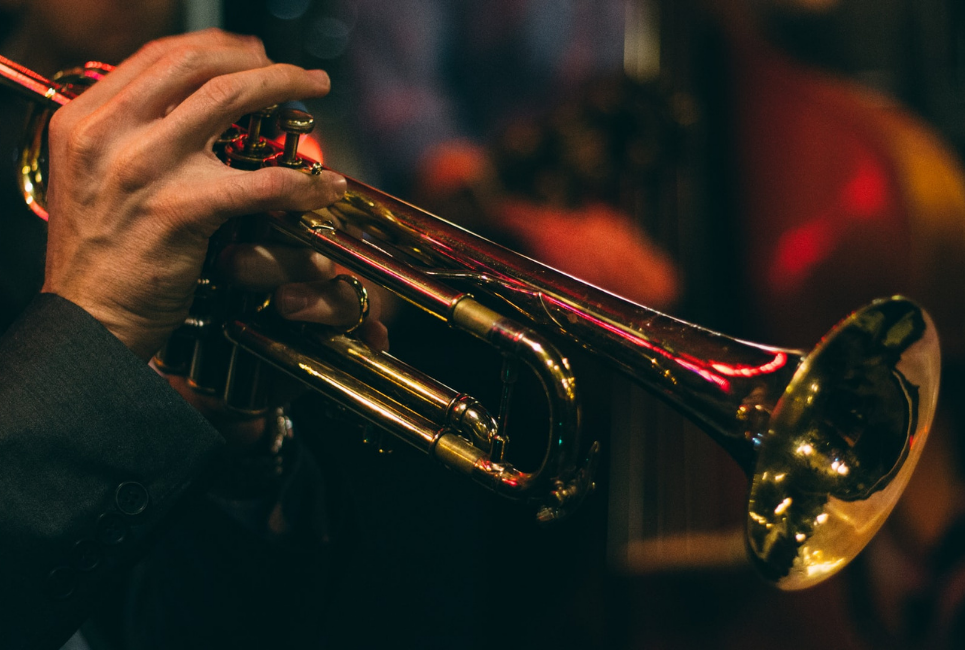- How to Find the Best Sopranino Saxophone - May 31, 2022
- How to Find the Best Contrabass Saxophone - May 30, 2022
- Trumpet Range Guide: Understanding The Entire Trumpet Range - May 19, 2022
Do you want to play a brass instrument but don’t want to deal with the weight of a tuba? You may want to have the cornet vs. trumpet explained to you to help select the right high brass instrument.
Then, you can start playing the music you love on an instrument that you enjoy. And if you don’ like what you pick, you can always switch to the other one.
Bottom Line Up Front: I prefer the trumpet because it’s more common. Instruments are easier to find at all levels, and you’ll be able to play in jazz bands, orchestras, and other groups.
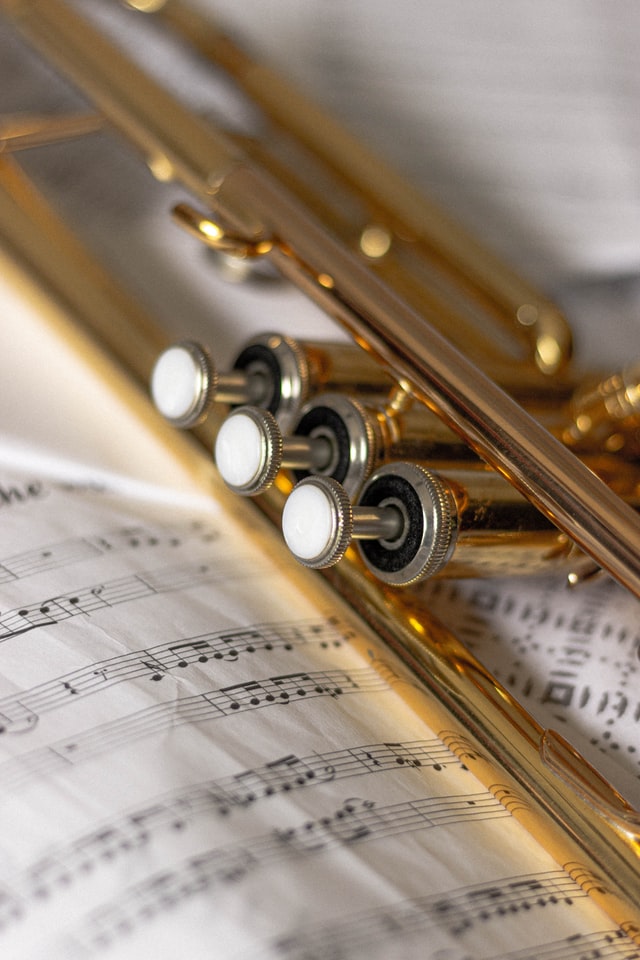
The Main Difference between the Cornet and Trumpet
The main differences between cornets and trumpets are:
- The cornet has more compact tubing whereas trumpet tubing is more spread out
- The cornet has a conical bore whereas a trumpet has a cylindrical bore
- The cornet has a deeper sound whereas the trumpet sounds brighter
- The cornet is just under 200 years old, whereas the trumpet has exited for much longer
- The cornet is most popular in brass bands whereas trumpets are the more common choice in orchestras
Consider how these differences can affect which instrument you choose.
Design
One of the easiest differences to spot is the design of the cornet vs. trumpet. Cornet tubing is much more compact, and it wraps around itself more than the tubing on a trumpet.
Because of this, the cornet can look a bit smaller than the trumpet, even though they have almost the same written range. The difference in design works with other elements to make each instrument unique.
Its more compact design makes the cornet an excellent option for younger students and people with joint problems. You don’t have to work as hard to keep the cornet in the right playing position.
Bore
The bore refers to the shape and size of the tubing of an instrument. Cornets feature a conical bore, which means the bore has a similar shape to a cone.
A cornet’s tubing slowly gets bigger (though not by much) as it goes from the leadpipe to the bell. Meanwhile, a trumpet has a cylindrical bore, so the tubing doesn’t change in size except for the bell flare.
Bore shapes can affect how the air moves through the instrument. That means you may not be able to use the same techniques to play both the cornet and trumpet.
Sound
An instrument’s bore can also have an effect on the sound you get from it. Cornets have a dark, robust sound, and they can work well with a lot of other brass instruments.
On the other hand, trumpets tend to sound much brighter. The sound of a trumpet also projects a bit more easily over a large ensemble.
Be sure to play or listen to both instruments before you choose one. Then, you’ll be able to select the instrument with the sound you like better.
History
Another difference that may affect your musical journey is the history of each instrument. Cornets got their start in the 1820s, so they’re only about 200 years old, which is pretty young as far as instruments go.
Compare that to the trumpet, which has been around for a lot longer. You can find plenty of trumpet parts in Baroque and Renaissance music as well as music from the Classical Era.
However, cornet parts only start to show up in the early Romantic era. So if you want to get an authentic sound when playing more music, you might want to play the trumpet.
Popularity
The trumpet is much more popular than the cornet, at least in schools and community bands. If you play the trumpet, you can play in a concert band, jazz band, orchestra, or many different chamber groups.
Cornets are more popular in traditional brass bands, though, so it may be the better choice for some. You may also find cornet parts in concert band music, but the bands I’ve been in use them with the trumpets rather than as a substitution.
Now, you can also play the cornet because it isn’t as popular. If people know you’re good at it, they may ask you to play when they need to cover a part for the instrument.
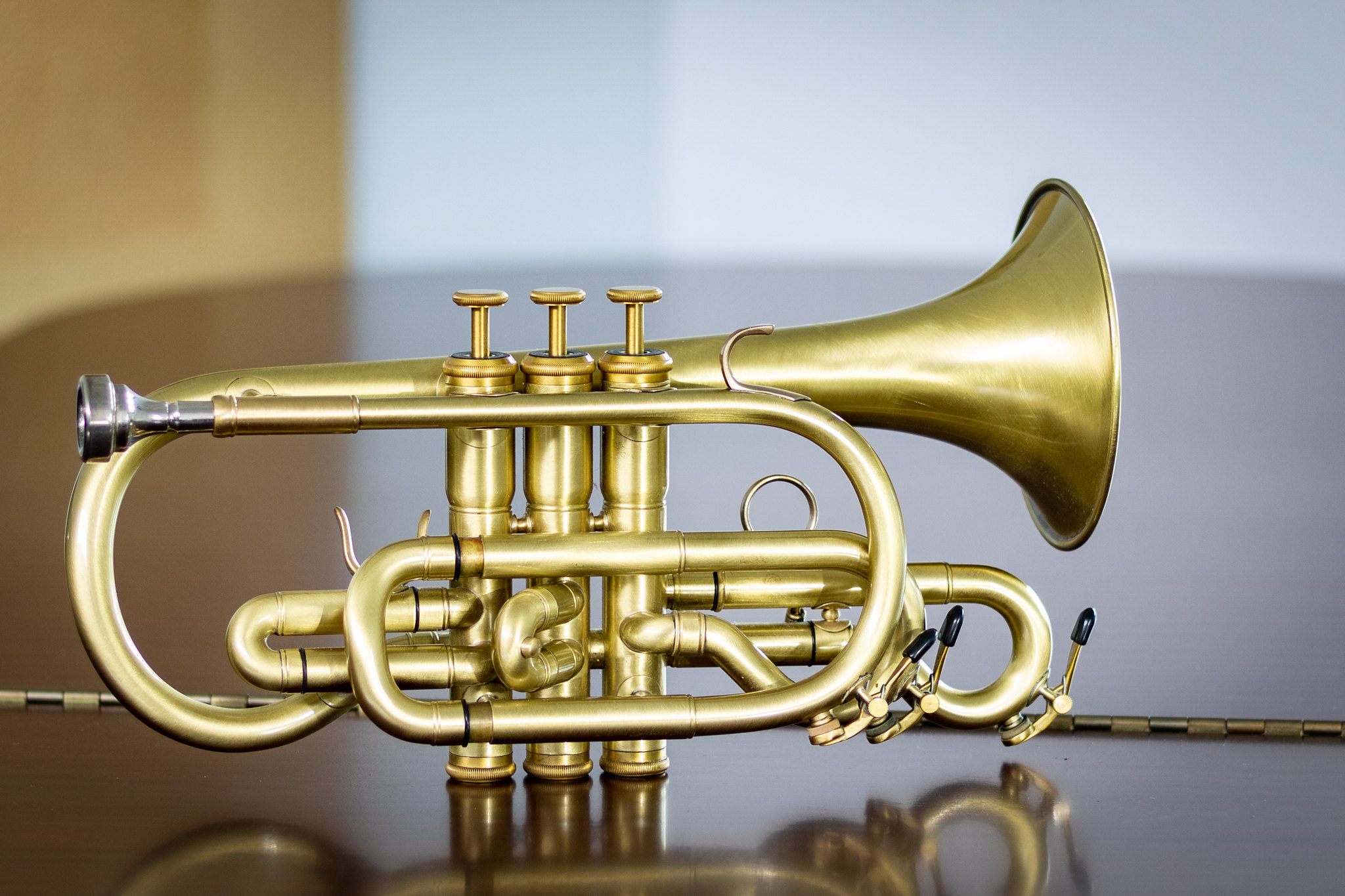
Why Play the Cornet
As you compare the cornet and trumpet, you may know which is the better choice for you. However, you might want to know more about each instrument to help you decide.
The cornet may not be as common as some instruments, but that doesn’t mean you shouldn’t try it. You may end up liking it more than you expect.
If you find you like it or if any of the following apply to you, it may be worth your time.
Size
The cornet isn’t much smaller than the trumpet, but the compact design gives it a slight advantage. If you have a young child who wants to play a brass instrument, the cornet may be easier for them to hold.
Or if you have joint problems or have trouble keeping your arms up, you may want to try the cornet. The instrument’s center of gravity will be closer to you, so balance may take less work.
Even if you don’t have any health problems and are a full-grown adult, the small size comes in handy. You don’t have to spend as much time building endurance to play for long periods.
Tone
Another benefit of the cornet is its darker, warmer tone. Of course, this can be subjective, and some players may like the bright sound of the trumpet.
But because it’s not as bright or shrill, you may be able to get a better sound sooner if you choose the cornet. You may not annoy your family or neighbors as you learn the basics of the instrument.
If you like a warmer tone, the cornet will be the better choice for you. It can be bright, and the trumpet can be dark, but the cornet is better at getting a rich sound.
Uniqueness
I mentioned that the cornet isn’t as common as the trumpet. But what may be a drawback for some can be an advantage for other players.
If you don’t want to deal with a ton of competition, the trumpet is not for you. There are going to be others who play the cornet, but you can use it to stand out among other brass players.
That makes it a suitable choice for people who aren’t good with competition. It’s also a good choice if you want to play for fun and don’t care about what instruments are popular.
Best Cornets
If you decide that the cornet is the right instrument for you, you may want to buy the first one you find. However, you should take a bit of time to compare your options.
I looked for some of the best models on the market. In my search, I looked for brands and models with good reputations. And I made sure to choose models at different price points and for different levels of playing.
Here are a few fantastic cornet models you can try.
Yamaha YCR-2310III
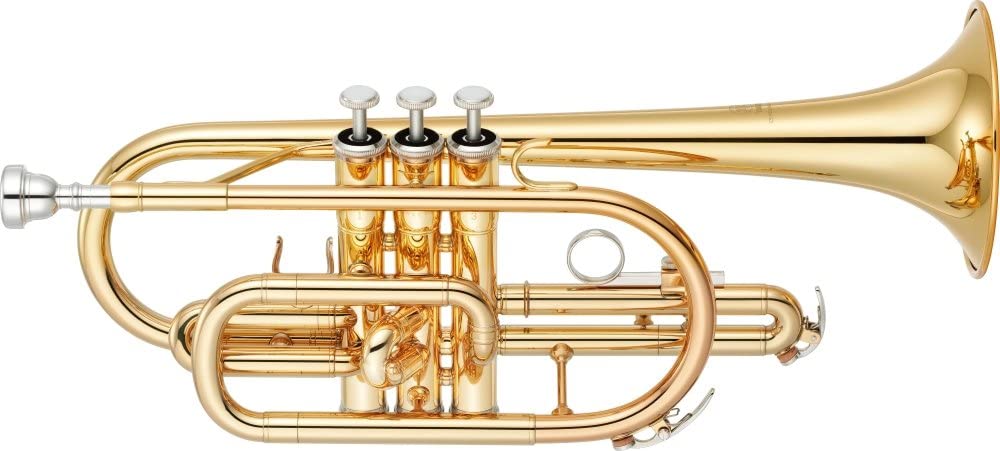
The Yamaha YCR-2310III is an excellent beginner cornet model. It features the standard brass lacquer that comes on many Yamaha brass instruments, so it looks and sounds great.
A yellow brass bell helps you project your sound and get a good tone from the instrument. The piston valves are in good condition, so you can play faster passages without the valves stopping.
This model is great for new players and anyone on a budget. You can get the quality you’d expect from a Yamaha, and you can use it to master the basics and even advance your playing a bit.
Pros
- Easy to play
- Affordable
- Perfect for beginners
- Good sound
- Nice materials
Cons
- Not for professionals
Schilke A1 Long Model
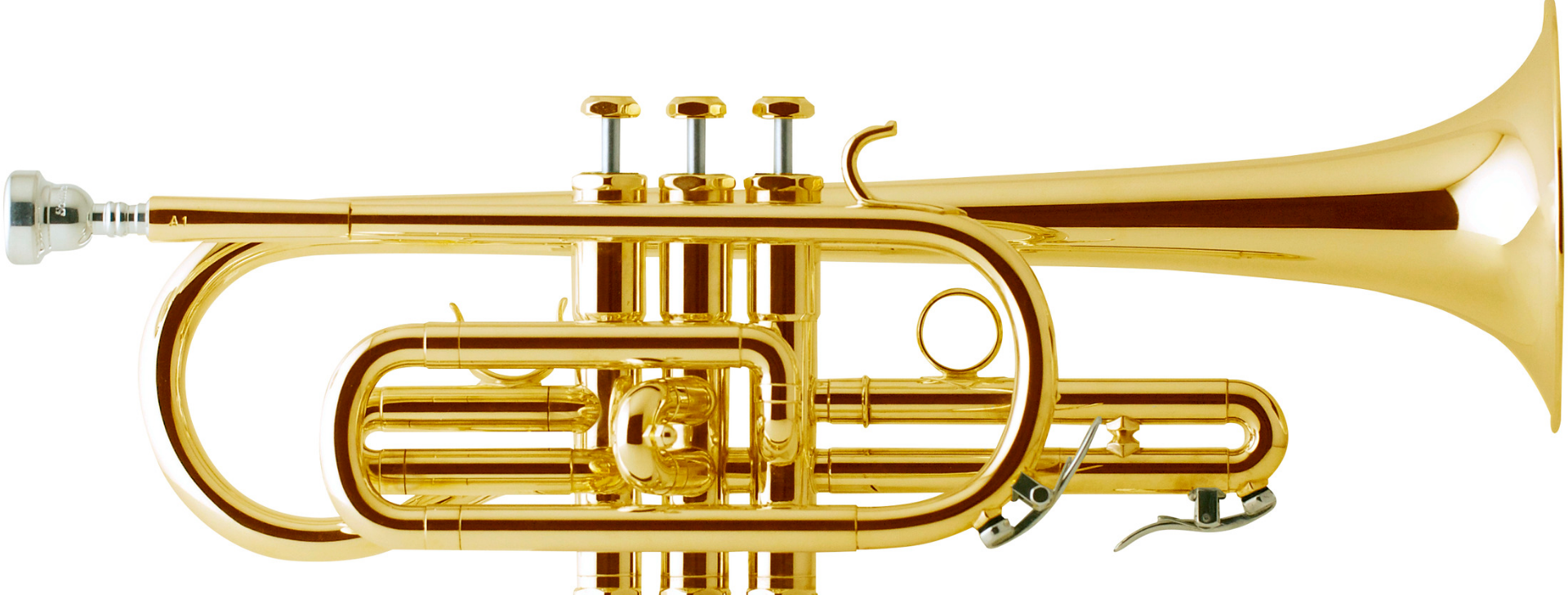
If you want to get a more advanced cornet, the Schilke A1 Long Model may be for you. The medium-large bore helps you get plenty of air through the instrument to produce a broad sound.
It also features a large bell to get the sound out to your audience. Plus, you can choose from a brass lacquer or silver finish to get the look and sound you desire.
This model is perfect for advanced players or beginners who are serious about the cornet. But it will cost you, so you may want to save up for a while before you buy it.
Pros
- Good for advanced players
- Large bell
- Multiple finishes
- Large bore
- Nice tone
Cons
- Expensive
- Not on Amazon
B&S 3142 Challenger II
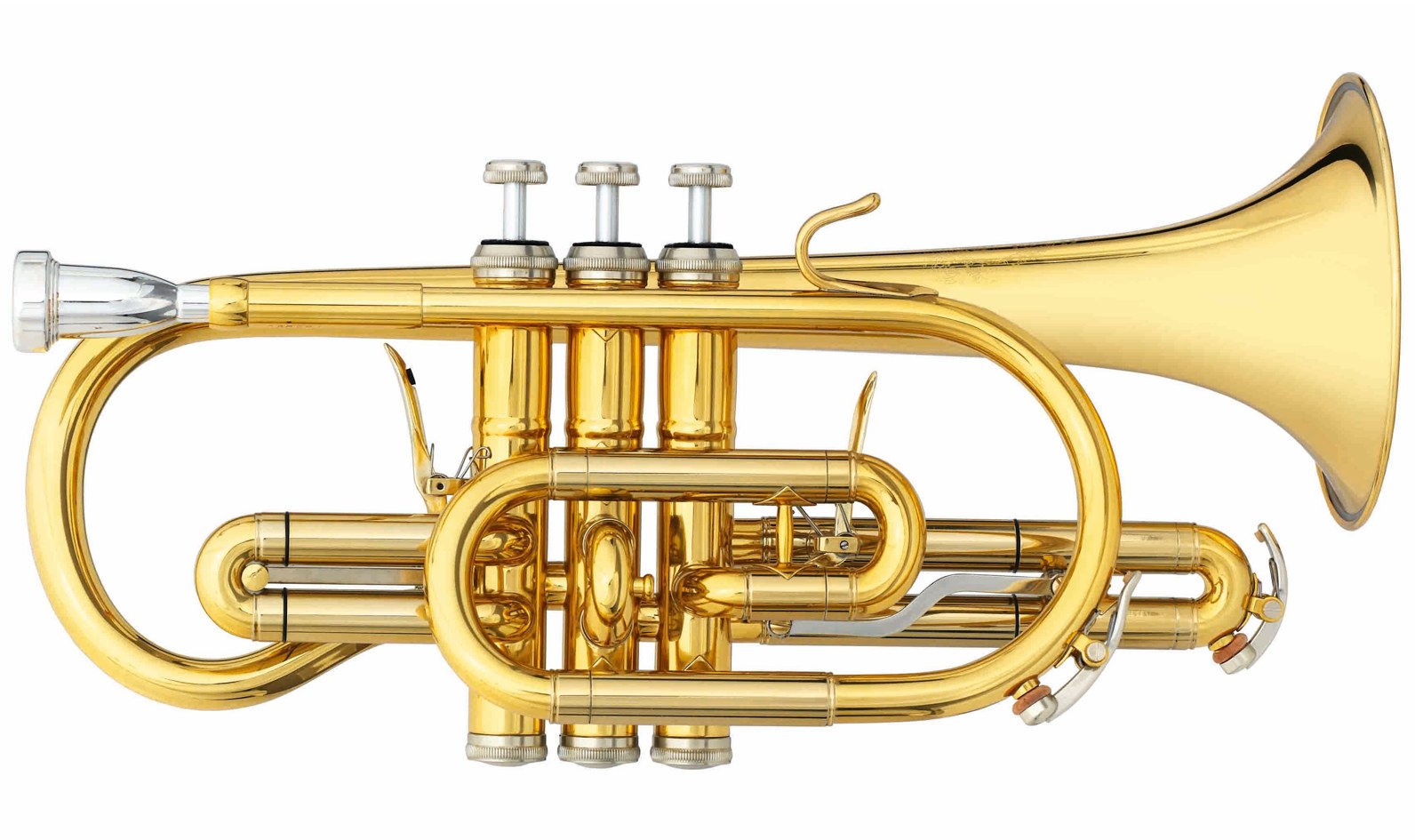
The B&S 3142 Challenger II is an amazing model for intermediate and advanced players to try. There’s a large .462″ bore, so you can get a larger sound than on some models.
It has a gold brass leadpipe and bell, both of which help you get a darker tone. You can also choose from a silver or gold lacquer finish to help get your ideal sound.
The first and third slides have triggers that you can use to adjust the pitch as you play. Along with the trumpet, you’ll get a mouthpiece and a case to protect your gear.
Pros
- Comes with accessories
- Good for advanced players
- Multiple finishes
- Gold brass elements
- Nice tone
Cons
- Expensive
- Not on Amazon
Why Play the Trumpet
The cornet offers a few unique benefits, and there are some good models out there. But some musicians may do better if they choose to play the trumpet instead.
Before you purchase a cornet, consider if the trumpet is a better fit. Then, you may find you enjoy playing music much more and can improve your skills without forcing yourself to do something you don’t like.
Here are a few reasons why you should consider playing the trumpet.
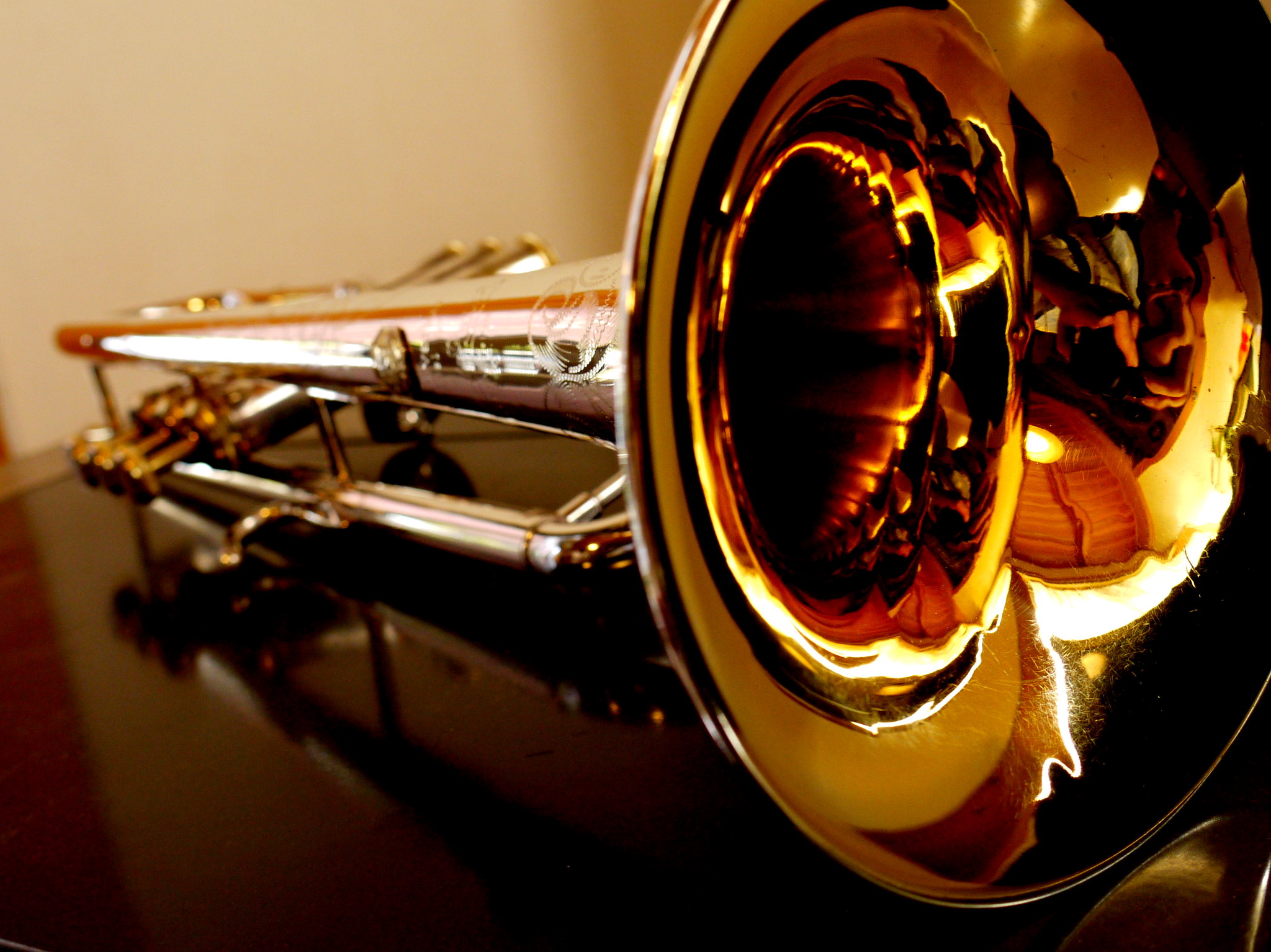
Opportunities
I can’t emphasize enough that the trumpet is more popular than the cornet. This popularity comes in handy at every stage of your musical journey, from finding a private teacher to joining music groups.
More private teachers are available for the trumpet than the cornet, though some teach both. You may also find more beginning trumpet books than cornet books to help you learn the basics.
Once you have some experience, you can join more groups as a trumpet player. That way, you can play music with others and have extra motivation to practice.
Cost
Since the trumpet is more common, you have more options to consider when buying your first instrument. A lot of cornets are for advanced players, so they’re more expensive.
But you can find plenty of beginner trumpets online or at your local music store. You may even be able to rent a decent trumpet for a while to make sure you’ll continue playing.
If you choose the cornet, you may not be able to rent one. You could find a used model, but that’s not always possible, and you’ll be stuck with the instrument if you decide to quit.
Repertoire
Another amazing reason to play the trumpet is to access more repertoire. The trumpet has music from multiple centuries, from the Baroque era to the modern-day.
Whether you want to play in a period group or a jazz band, you have options. You don’t have to limit yourself to brass bands or concert bands like you would if you only played the cornet.
Sure, you could play trumpet music on the cornet. However, that wouldn’t be as authentic, and you may need to account for some minor technical differences to get the best sound.
Best Trumpets
If you’re ready to start playing the trumpet, you need a good instrument. You could shop around and buy whatever pops up first, but that’s not the best strategy.
That’s why I looked at some of the best trumpets for you. I stuck to reputable brands, and I chose models of different levels and various price points so that there’s something for everyone.
Consider the following models when shopping for the best trumpet.
Yamaha YTTR-2330

The Yamaha YTTR-2330 is the student-level trumpet from the company. It’s easy to play and reliable, so beginners can use it for a long time without it breaking down.
Like other Yamaha trumpets, it uses a yellow brass bell that can help you get a fantastic tone. The trumpet is easy to balance, so you don’t have to work too hard to hold it up.
You can easily adjust the first and third slides so that you play in tune with other musicians. Even after you upgrade, it can serve as a good backup if you need to send another trumpet out for maintenance.
Pros
- Reliable
- Easy to play
- Good for beginners
- Nice sound
- Easy to tune
Cons
- Not the best for professionals
Conn 52BSP

Intermediate players should consider the Conn 52BSP when looking for a new trumpet. The model has many professional features, so it’s also perfect for amateur players who don’t want to spend a ton of money.
It has a large bell and bore to help you get a big sound that fills a concert hall. There’s a first valve thumb saddle and a third valve ring that help you hold the instrument as you play.
You’ll also get a 3C mouthpiece, so you don’t need to use an old mouthpiece or buy one separately. It’s a nice compromise between beginner and professional models.
Pros
- Nice upgrade
- Good features
- Affordable
- Comes with mouthpiece
- Suitable for amateurs
Cons
- Not on Amazon
Bach 180S37

If you’re ready to upgrade your trumpet, you can’t go wrong with the Bach 180S37. This trumpet comes with a 7C mouthpiece, so you have everything you need to start playing.
The first and third slides are adjustable to help tune the instrument and make it comfortable to hold. Meanwhile, the one-piece hand-hammered bell offers fantastic projection for your sound.
You can save a bit of money on this model by getting the standard brass lacquer model. But the silver finish may be worth the extra cost for serious players.
Pros
- Good for professionals
- Adjustable
- Easy to tune
- Nice sound
- Projects well
Cons
- Expensive
FAQs about the Cornet Vs. Trumpet Explained
Answer: You can play the cornet and trumpet, and many people do. A lot of the trumpet players in wind ensemble would switch between the trumpet and cornet if there was a cornet part on a band piece.
However, I’d recommend learning one first so that you can focus on the basics of that instrument. Then, you can add the other one into your practice routine.
Answer: The easier instrument can depend on the specific player. For example, a younger student may find the cornet is easier because of the compact design.
However, someone who’s more interested in jazz may find the trumpet is easy. Liking the music you can play will make practicing a lot more enjoyable, so it can seem like the instrument is “easier.”
Answer: The cheaper instrument depends on the brand and level of the instrument in question. In my search, I found a cheaper student cornet than a student trumpet.
But at the intermediate and professional levels, the prices are about the same. Some cornets are a bit more expensive than some trumpets at a similar level.
Answer: Despite their differences, the cornet and trumpet share many features. For one, they’re both part of the brass family and so use brass to make up the tubing.
Even with a brass base, both instruments may use a brass lacquer or a silver finish. And both instruments are in the key of Bb, meaning that all Cs you play will sound like a Bb on a piano.
Final Note On The Cornet Vs. Trumpet Explained
The cornet and trumpet both have some features that make them better than the other. Cornets may be compact and have a dark tone, but trumpets are more common, and trumpet teachers are easier to find.
To help understand which is right for you, consider having the cornet vs. trumpet explained in detail. Then, you can decide what’s right for you.
I’d recommend the trumpet, specifically the Yamaha YTR-2330, for beginners. It’s more popular, and so you’ll have an easier time learning it on your own or in a school band. You can always start learning the cornet later.
Looking for more interesting readings? Check out:

